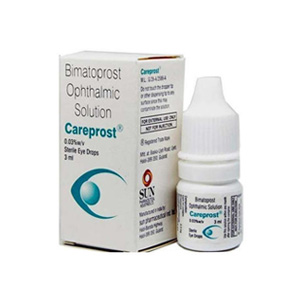Sorry, nothing in cart.
-
$ 28.05
Antibiotic Eye Drops To Treat Eye Infections
Eyes are an integral part of our health. We rely on our eyes to see and notify things. However, some common eye diseases can impair our vision, so it is imperative to take care of your eyes through regular checkups. If you experience any eye symptoms, please with an ophthalmologist to identify eye diseases and treat them at earliest. You can get your eyes checked as recommended by your primary care physician (PCP) if you have any vision issues.
Many of us have some or the other issues with eyes at one point or another. Some minor eye conditions often go away on their own without any specific treatment or with simple home remedies. However, eye diseases that persist for a longer duration need a specialist’s attention, such as an ophthalmologist. Eyecare is essential. You need to keep your eyes healthy just like you keep your body healthy.
Common Eye Health Issues
Eyestrain: We often experience strain in our eyes after long hours of reading, working at a computer, or driving long distances. And that's because we tend to overuse our eyes, which is why they get tired and they simply need rest.
Conjunctivitis: Also called pink eye or red eye, conjunctivitis is one of the most common eye conditions. Simply put, it is the inflammation of the conjunctiva. Over-the-counter eye drops containing antibiotics and enough rest is enough to treat conjunctivitis.
Dry Eyes: Dry eyes is yet another common eye health issue in which your eyes fail to make enough tears. You may feel your eyes dry and there is a sensation of something in your eyes. Extreme dryness of eyes needs medical attention. Special eye drops are available to treat dry eyes, which act like real tears.
Vision Impairment: As age progresses, you may notice that your vision has diminished or impaired, which is normal. You may need eyeglasses or contact lenses. However, chronic vision impairment could also be a sign of some underlying eye diseases, such as macular degeneration, cataracts, glaucoma, and retinopathy.
Hypotrichosis: Lack of eyelashes or inadequate eyelashes is also one of the common issues that most people suffer from. Also called hypotrichosis, inadequate eyelashes can be treated with a medication called Careprost (bimatoprost), which is also used in treating glaucoma.
Refractive Errors: Farsightedness (hyperopia), nearsightedness (myopia), and presbyopia in old age are a few common refractive errors that can be treated simply by wearing glasses or contact lenses. You can even opt for Lasik eye surgery to correct your refractive errors.
Others: Colorblindness, night blindness, lazy eyes, black eye, corneal diseases, and uveitis are other eye disorders that need medical attention.
Eye Exam or Test
It is important for everyone to get their eyes and eyesight checked for any vision or eye health issues. Usually, children have their eye or vision screening in school or at their PCP’s office during an annual checkup. Adults can also get their vision checked during their visits. However, for some adults, a comprehensive eye exam or test is required, especially if they are old or have some ongoing eye issues. A comprehensive eye exam is important because it is difficult to identify some eye diseases with a naked eye. An ophthalmologist can help you with eye screening to see if there are any early warning signs.
Eye Care Tips
- Just like you take care of your body, it is imperative to take care of your eyes. There are a few simple tips that can help you to improve your vision and prevent certain eye disorders. Following are some of the effective eye care tips:
- Eat a healthy and balanced diet rich in essential macronutrients and micronutrients.
- Exercise regularly to prevent and treat certain diseases, such as hypertension and diabetes, which increase the risk of glaucoma and diabetic retinopathy.
- Maintain a healthy weight if you are overweight or obese.
- Wear protective eye-gear or sunglasses to prevent sun exposure and injuries, which can damage your eyes and eyesight.
- Quit smoking and limit your alcohol intake. Smoking, in particular, can cause macular degeneration and cataracts, and may even damage the optic nerve.
- Get enough sleep because your eyes need rest. Spending a lot of time on computer screens can cause eyestrain. You can check with an expert to know about eye exercises.
 US: 1-888-618-2818
US: 1-888-618-2818
